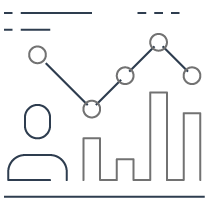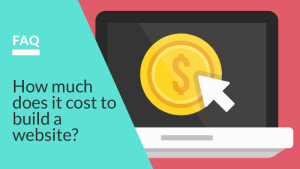— May 14, 2019

What is Social Listening?
Social listening is the act of scouring the internet for chatter about your brand. Some of the feedback you’ll see on your social media channels because people will speak to you and about you there. But, a lot could go unnoticed if you’re not actively engaging in social listening since people could be talking about you in places you’re not looking.
Social media listening is not social media monitoring; Monitoring focuses on the numbers – your engagement rate, the number of mentions, follower growth, likes, shares, comments, and impressions. That’s important to guide your strategy, but listening is vital to gathering information on your brand’s online reputation.
We know it’s essential to have a social media presence because Google and other search engines pay attention to social signals, but merely creating a profile on the networks you use to connect with your audience and posting to it regularly isn’t enough. When you publish content, ideally it’s because you’ve done your homework and know your audience well enough to know what kind of content they will be most interested in consuming and sharing.
But what happens after you’ve built that presence and your brand is in front of thousands or even millions of people? Do you keep posting and watching analytics to see what people respond to, and create a strategy that gives people more of what they want? Yes, but you also do something else – you start listening to what people are saying about your brand.
How do you do that, if you can’t see it all? Social listening.
Why Your Brand Needs Social Listening
Many business owners think identifying your target audience is something that starts your marketing process. And while you do need to know who you’re targeting in the beginning, the truth is your audience may evolve alongside your business. You may find your target demographic is not who you first imagined they’d be, and social listening helps you keep up with who’s interested in your business, compared to who you think should be.
Social listening isn’t about you – it’s about who is talking about you and why they’re doing it. It can help you learn what your audience is saying about your competition, so you know how you’re doing things better (or worse) than they are. With that information, you can change your offerings to solve problems better and improve your position in the marketplace.
Social Listening Tools
There are several tools you can use for social listening. Here are four of the best ones on the market today.
Mention
Mention is a tool that combines competitor research, social listening, and analytics. Mention is a paid tool with pricing starting at $ 25/month when billed annually, but there is a free trial available.
IFTTT
If This Then That is a free automation tool you can use for tons of things. Creating an applet will allow you to get an email whenever someone mentions your brand in a selected industry RSS feed. You can also use it to share content from one social channel to the next automatically, store all your Gmail attachments in Google Drive, and more. This tool is free.
Keyhole
Keyhole is a tool that allows you to amp up your social listening efforts, going beyond your brand, name, and product mentions. With it, you can also track your industry-specific keywords, so when influencers start discussing news for that keyword, you can jump in on the conversation right away and boost your authority and credibility. Request a demo to learn more.
Hootsuite
Hootsuite is a social media automation tool that allows you to monitor your social media mentions in real-time so you can respond to people who are talking about you immediately. With it, you can put all your social media feeds in one place, and easily track brand mentions for faster response time and better customer service. This is a paid tool, with pricing starting at $ 29/month. There is a limited free forever plan and a 30 day trial on all paid plans.
What to Look For
Social listening is about the sentiment of what people are saying when they’re talking about you. If your brand is mentioned 2,000 times on Twitter, that’s great, unless the majority of the mentions are complaining about product defects or poor customer service experience.
When you’re using social listening tools, look for mentions of the following, either in writing or in hashtag format.
- Full brand name
- Branded hashtags
- Industry keywords
- CEO name
- Names of high-profile employees
- Competitors names
- Your brand’s social media handles
- Business slogans, both general and campaign specific
If you look for hashtags, you could be missing a lot. Many people will get on social media and write feedback, both positive and negative, without taking the time to look up and include handles and hashtags.
How to Use the Social Listening Data
Once you’ve gathered data and you start to see what people are saying, you notice that some are happy, some are neutral, and some are angry. That’s pretty standard because it’s impossible to have 100% of your audience satisfied with your business 100% of the time. People will almost always find something to complain about. But, what do you do with this information?
Use it to Improve Customer Service
When someone mentions your brand, jump in to provide assistance with their issue or thank them for their positive comments. Since one in three social media users prefer social media for customer service to email or phone, and 60% of customers who complain on social media expect to get a response within 60 minutes, it’s essential to be on top of it. Plus, customers spend 20 to 40% more with companies who engage with and respond to customers via social media.
Adjust Your Social Media Strategy
Social listening helps you see where your audience is most active and responsive, so you know where to be concentrating most of your efforts. You’ll also be able to tell which platforms need more of your attention to bring up to par with the rest of them. With this information, you can determine if it’s time to make changes to the types of content you’re creating and sharing. It’s possible you’ll even find a few new influencers who are talking about your products and services to work with on future campaigns.
Salvage Your Online Reputation
Bad reviews can quickly destroy your reputation. If a story is picked up by the right influencer, people who’ve never heard of your brand could start leaving comments and reviews that will haunt you. Don’t believe us? Just look at Amy’s Baking Company, a now-closed company that went nuts on social media after their episode of Kitchen Nightmares aired. Social listening allows you to catch these issues and deal with them quickly before they have a chance to go viral.
Market Research/Product Ideas
By listening for your brand mentions as well as your competition, you can watch for patterns in the commentary. You may gain insights into gaps in the market that you can use to improve your existing products, build new services, and more.
Ready to Take Control of Your Online Reputation?
When your customers have a positive experience, they spend more time on your site. They talk about you more often online – leaving reviews which earn you backlinks, sharing your content on social, and mentioning your brand – which sends social signals to the search engines. Though there isn’t a direct effect on rankings, there is an indirect influence on your SEO, which can be enough to differentiate you from the competition and impact your overall ranking.
Digital & Social Articles on Business 2 Community
(29)








